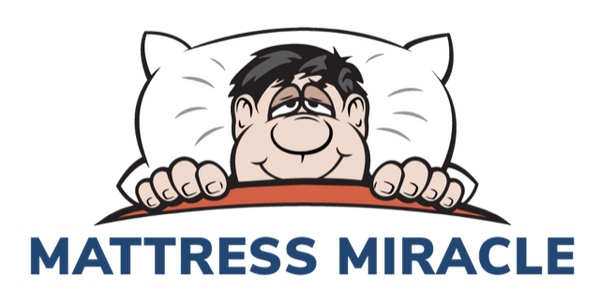In This Article:

Quick Answers
What temperature for sleeping? 15-19°C (60-67°F). Cooler than most people expect. Your body temperature drops when you sleep, and a cool room helps that happen.
How much sleep do I need? 7-9 hours for adults. But quality matters too - uninterrupted sleep is better than 9 hours of tossing and turning.
How do I fall asleep faster? Same bedtime every night. No screens an hour before bed. Keep it cool and dark. And honestly, a supportive mattress helps more than people realize.
Sleep Disorders and Your Immune System
Sleep apnea, insomnia, restless legs: these aren't just inconveniences. They're conditions that affect your immune system every night you struggle with them. Understanding the connection helps explain why people with untreated sleep disorders get sick more often.
How Sleep Disorders Differ from Poor Sleep
Everyone has bad nights. A sleep disorder is different: it's a pattern that persists, often with an identifiable cause. Poor sleep by choice (staying up late, ignoring good sleep habits) can be fixed by changing behaviour. Sleep disorders often need medical intervention.
The distinction matters for immune function because chronic, ongoing sleep disruption does more damage than occasional bad nights.
Sleep Apnea and Immunity
Sleep apnea causes you to stop breathing repeatedly during the night. Your body wakes just enough to restart breathing, often without you being aware. The result: fragmented sleep and drops in blood oxygen.
Research from 2023 found that untreated sleep apnea patients had:
- 30% lower natural killer cell activity compared to controls
- Higher inflammatory markers (CRP, IL-6) even during waking hours
- Reduced vaccination response
- Longer recovery times from infections
The repeated oxygen drops stress the body. That stress response includes inflammation, which over time weakens immune function.
What Helps
CPAP therapy is the gold standard for sleep apnea. For mild cases, positional therapy (sleeping on your side, elevating the head with an adjustable base) can reduce episodes. Weight loss helps many patients. But the first step is diagnosis through a sleep study.
Insomnia and Immunity
Chronic insomnia means regularly struggling to fall asleep or stay asleep, despite adequate opportunity. It's not about schedule or environment. It's about a brain that won't shut down.
Studies show that insomnia affects immune function differently than sleep apnea:
- Increased cortisol levels that suppress immune response
- Reduced slow-wave sleep where most immune repair happens
- Higher susceptibility to viral infections
- More severe symptoms when sick
The anxiety around not sleeping often makes things worse. Lying awake worrying about not sleeping creates stress that further delays sleep.
What Helps
Cognitive behavioural therapy for insomnia (CBT-I) has better long-term results than sleeping pills. Environment matters too: a comfortable mattress, cool temperature, and dark room remove physical barriers. But if the problem is in your head, the solution needs to address that too.
Restless Leg Syndrome and Immunity
RLS causes uncomfortable sensations in the legs that create an urge to move, especially at night. It disrupts sleep onset and fragments sleep throughout the night.
The immune connection is less direct than with apnea or insomnia, but sleep fragmentation from RLS still affects immune function:
- Reduced time in deep sleep stages
- Chronic fatigue that stresses the body
- Often associated with iron deficiency, which itself affects immunity
What Helps
Iron supplementation helps some people. Reducing caffeine and alcohol can reduce symptoms. Some medications help. Movement and stretching before bed can reduce the urge to move during sleep.
The Inflammation Connection
All sleep disorders tend to increase chronic inflammation. Inflammation is your body's response to threat, but when it's always elevated, it exhausts resources that should be available for actual infections.
Think of your immune system as having a budget. Chronic inflammation from sleep disorders spends that budget on a false alarm, leaving less for real threats.
Getting Diagnosed
If you suspect a sleep disorder:
- Talk to your doctor about symptoms: snoring, gasping, difficulty falling asleep, daytime fatigue despite adequate time in bed
- Consider a sleep study (polysomnography) to measure what's actually happening while you sleep
- Keep a sleep diary for 2 weeks before your appointment to identify patterns
Many sleep disorders go undiagnosed because people assume poor sleep is normal. It's not. Chronic poor sleep has health consequences, and many causes are treatable.
What Your Mattress Can and Can't Do
A mattress won't cure sleep apnea or insomnia. But the wrong mattress can make any sleep disorder worse:
- Discomfort adds to waking episodes
- Poor temperature regulation increases restlessness
- Inadequate support creates pain that fragments sleep
A proper mattress removes one variable from the equation. If you're treating a sleep disorder, you want everything else optimized.
The Brantford Perspective
Sleep disorder diagnosis is available locally. Your family doctor can refer you for a sleep study. The Joseph Brant Memorial Hospital has sleep medicine resources. Don't assume you have to travel to Toronto for diagnosis.
Come See Us
If you're addressing a sleep disorder and want to optimize your sleep environment, come to 441½ West Street in Brantford. We can discuss mattress options that work with CPAP machines, adjustable bases for positional therapy, and other solutions that complement medical treatment.
Mattress Miracle: supporting Brantford's sleep health since 1987.

